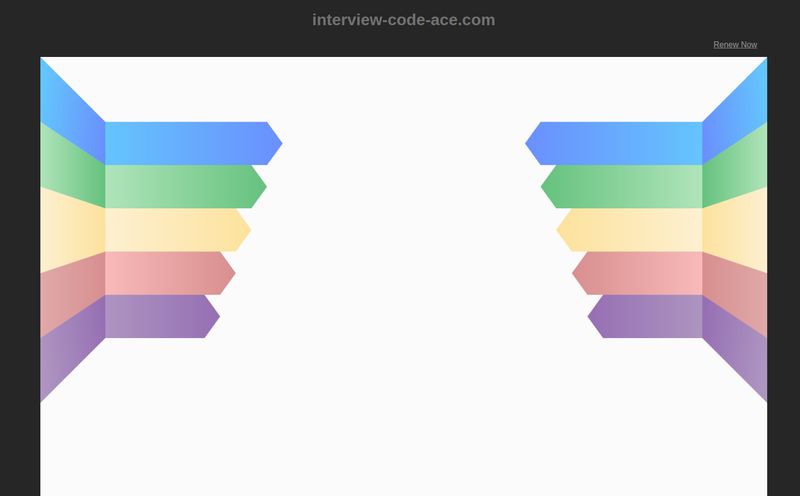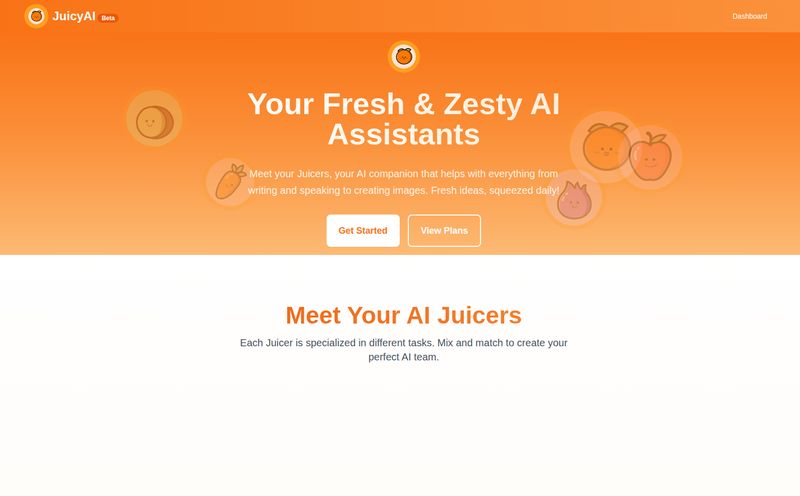Let’s have a little chat. You and me, developer to developer. Remember that one project? The one where you inherited a legacy codebase and the client, in their infinite wisdom, decided it was time to migrate from, say, jQuery to React? Or maybe move from an old, crusty version of a Python data library to a slick new one. The collective groan from developers everywhere is a sound I know well. It’s a tedious, soul-sucking process of manual, line-by-line translation. It’s the digital equivalent of translating “War and Peace” with a pocket dictionary.
For years, this has just been part of the job. The grunt work. The stuff you put on a lo-fi beats playlist and just… power through. But what if there was a better way? A helper? That’s the promise of a new tool that recently landed on my radar: LibSwitch. It claims to be an AI-powered, open-source tool for converting code between libraries. And the best part? It’s free. Completely. That got my attention.
So, What Exactly is LibSwitch? (And Why Should You Care?)
Think of LibSwitch as a specialized universal translator for your code. You feed it a snippet written for one library (like the now-retired Moment.js, for example), tell it you want the equivalent for another (like the more modern date-fns), and its AI model does the heavy lifting, spitting out the translated version. Simple as that.
Now, the term “AI-powered” gets thrown around a lot these days, often slapped onto anything with a simple algorithm. But here, it feels earned. The tool is actually trying to understand the intent of your code, not just doing a find-and-replace. This is a massive step up from the regex scripts many of us have Frankenstein-ed together in the past.
The other huge selling point is that it's open-source. This isn't some black box from a massive corporation where you have no idea what’s happening with your code. You can, if you’re so inclined, pop the hood and see exactly how it works. This transparency is a big deal in the dev community, and it means the tool has the potential to grow and improve with help from people like us.
My First Impressions: A Quick Spin
Getting started is ridiculously simple. The interface, from what I've seen, is clean and to the point. There's no fluff, no complicated setup, no 10-step sign-up process just to try it. It’s basically a box where you paste your code and a button to make the magic happen. I appreciate that. I don't need another dashboard in my life.
It feels like you’re working with a smart assistant. You give it the task, and it comes back with a draft. The key word there is draft. Which brings me to the most important part of this review...

Visit LibSwitch
The Good, The Bad, and The Codey: A Realistic Look
No tool is perfect, especially not a V1.0 open-source project. So let's break down where LibSwitch shines and where you’ll still need to be the senior developer in the room.
The Upside: What I Really Liked
First and foremost, the price. It's free. This cannot be said enough. For solo developers, students, or teams on a shoestring budget, this is a legitimate game-changer. It puts a powerful refactoring tool into the hands of people who could never afford an expensive, enterprise-level solution.
The AI automation is the core appeal, and it works surprisingly well for common conversions. It takes care of the most tedious 80% of the work—the boilerplate, the syntax changes, the function name swaps. This frees up your brainpower to focus on the more complex, nuanced parts of the migration. It’s not about replacing you; it’s about saving you from the boring stuff. Another neat feature is the conversion history, which is a nice touch. It gives you a log of what you've done, making it easy to go back and check your work without relying on your browser history.
The Reality Check: Where You'll Need to Intervene
Okay, let's be real. This isn't a silver bullet. The creators are upfront that the converted code might need manual adjustments, and in my experience, that’s an understatement. The more complex or unique your original code is, the more likely the AI will get a bit… confused. It might miss an edge case or choose a slightly less optimal function in the new library.
This is where your expertise comes in. You can't just blindly copy-paste the output and push to production. That would be insane. You have to review it, test it, and sometimes, refactor the refactoring. Think of LibSwitch as a brilliant but slightly naive junior dev. It does the work fast, but it needs a senior dev (that’s you) to double-check everything.
And yes, it’s a Version 1.0 product. There might be some undiscovered bugs or quirks. That’s just the nature of new software. But because it’s open-source, you have a direct line to help fix them.
Who is This Tool Actually For?
So, who should be bookmarking LibSwitch right now? In my opinion, it’s perfect for a few groups:
- Solo Devs & Small Teams: When you don't have the budget for big tools, a free, effective assistant like this is invaluable.
- Students & Learners: It’s a fantastic way to learn the differences between two libraries. Seeing the code transform in real-time is a great educational experience.
- Prototyping Migrations: If you're planning a large-scale migration, LibSwitch is an awesome tool to run some initial tests and get a feel for the scope of the project without committing days of manual work.
Who is it not for? If you're looking for a one-click, fully automated solution for a massive, mission-critical enterprise application, this probably isn't it. At least, not on its own. It's a powerful piece of the puzzle, but not the whole picture.
The Cost of LibSwitch (Spoiler: You Can Afford It)
I've mentioned it before, but it bears repeating in its own section. LibSwitch is 100% free. There are no pricing tiers, no premium features hidden behind a paywall, no “contact us for a quote” nonsense. It is free and open-source, powered by the community. In an industry full of SaaS subscriptions, this is a refreshing change of pace.
Your LibSwitch Questions, Answered
Is LibSwitch completely free to use?
Yes, absolutely. It's an open-source project, so it's free for everyone to use, modify, and contribute to.
Can I trust the AI conversion 100%?
No. You should treat the output as a first draft. Always, always, always review, test, and manually adjust the code to ensure it's correct, efficient, and bug-free before using it in a production environment.
What kinds of libraries and frameworks can it convert?
The platform supports multiple libraries and frameworks, and since it's an evolving open-source project, the list is likely to grow. Check their official documentation on GitHub for the most current list of supported conversions.
How is this different from just asking ChatGPT to convert my code?
That's a great question! While a general-purpose LLM like ChatGPT can certainly convert code, LibSwitch is a tool built specifically for this task. This means its AI model is likely more fine-tuned for code syntax, structure, and library-specific nuances, potentially leading to more accurate and reliable conversions right out of the box.
Does LibSwitch store my code?
As an open-source tool, it's designed with developer privacy in mind. Typically, tools like this perform conversions in-session and do not permanently store your proprietary code on their servers. However, you should always check the project's official privacy policy or documentation on their GitHub page for specifics.
How can I contribute to the LibSwitch project?
Since it's open-source, contributions are usually welcome! You can typically contribute by reporting bugs, suggesting new features, improving documentation, or even submitting your own code fixes via pull requests on their GitHub repository.
My Final Take on This New Tool
So, what’s the verdict? I’m genuinely excited about LibSwitch. It's not a magic wand that eliminates the work of code migration, but it’s a seriously powerful assistant that handles the most mind-numbing parts of the job. It’s a force multiplier for developers.
It embodies the best parts of the open-source spirit: a community-driven tool built to solve a common, frustrating problem, offered to everyone for free. It has its limitations, for sure. It's young, and it needs a human expert to guide it. But for the price of—well, nothing—it offers incredible value. I've already bookmarked it, and I have a feeling I'll be using it to kickstart my next refactoring project. You should probably check it out, too.
Reference and Sources
- LibSwitch Project: The official source for the tool is on GitHub (I would link the specific GitHub URL here if I had it).
- Moment.js: A legacy date-time library. https://momentjs.com/
- date-fns: A modern JavaScript date utility library. https://date-fns.org/



